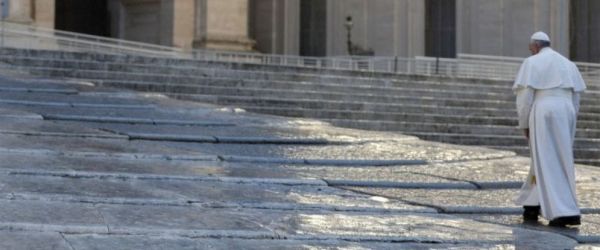Today’s Gospel passage (cf. Lk 10:1-12, 17-20) presents Jesus who sends 72 disciples on mission, in addition to the 12 Apostles. The number 72 likely refers to all the nations. Indeed, in the Book of Genesis 72 different nations are mentioned (cf. 10:1-32). Thus, this conveyance prefigures the Church’s mission to proclaim the Gospel to all peoples. Jesus says to those disciples: “The harvest is plentiful, but the labourers are few; pray therefore the Lord of the harvest to send out labourers into his harvest!” (Lk 10:2).
This request by Jesus is always valid. We must always pray to the “Lord of the harvest”, namely, God the Father, that he send labourers into his field which is the world. And each of us must do so with an open heart, with a missionary attitude; our prayer must not be limited only to our needs, to our necessities: a prayer is truly Christian if it also has a universal dimension.
In sending out the 72 disciples, Jesus gives them precise instructions which express the characteristics of the mission. The first, as we have already seen, is: pray; the second: go; and then: carry no purse, no bag...; say, ‘Peace be to this house’ ... remain in the same house... do not go from house to house... heal the sick in it and say to them, ‘The kingdom of God has come near to you’”. And if they do not receive you, go out into the streets and take your leave (cf. vv. 2-10). These imperatives show that the mission is based on prayer; that it is itinerant: it is not idle; it is itinerant; that it requires separation and poverty; that it brings peace and healing, signs of the closeness of the Kingdom of God; that it is not proselytism but proclamation and witness; and that it also requires frankness and the evangelical freedom to leave while highlighting the responsibility of having rejected the message of salvation, but without condemnation and cursing.
If lived in these terms, the mission of the Church will be characterized by joy. And how does this passage end? The 72 “returned with joy” (cf. v. 17). It is not an ephemeral joy, which flows from the success of the mission; on the contrary, it is a joy rooted in the promise that — as Jesus says: “your names are written in heaven” (v. 20). With this expression he means inner joy, and the indestructible joy that is born out of the awareness of being called by God to follow his Son. That is, the joy of being his disciples. Today, for example, each of us, here in the Square, can think of the name we received on the day of Baptism: that name is “written in heaven”, in the heart of God the Father. And it is the joy of his gift that makes a missionary of every disciple, those who walk in the company of the Lord Jesus, who learn from him to unsparingly expend themselves for others, free of oneself and of one’s possessions.
Together let us invoke the maternal protection of Mary Most Holy, that she support the mission of Christ’s disciples in every place; the mission to proclaim to all that God loves us, wants to save us, and calls us to join his Kingdom.
[Pope Francis, Angelus 7 July 2019]












